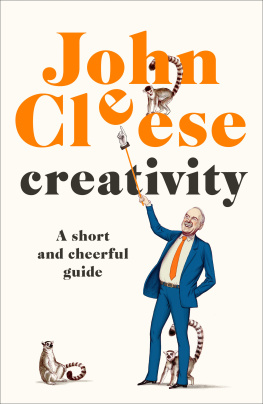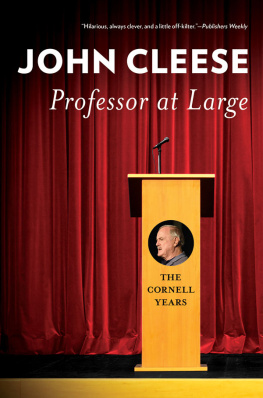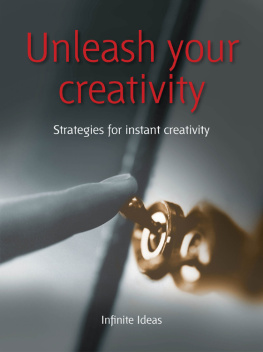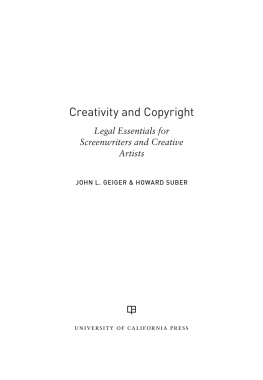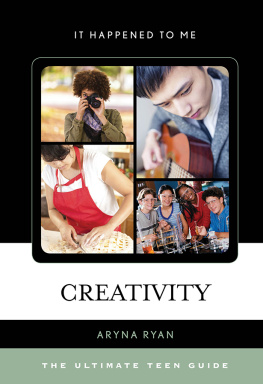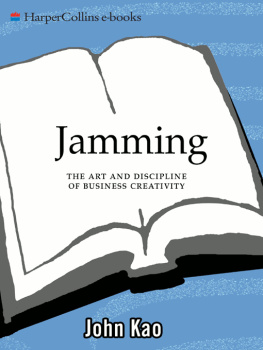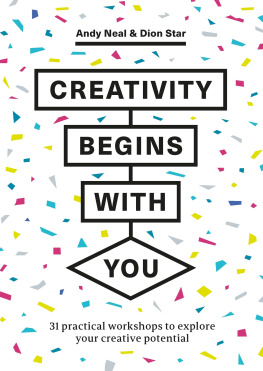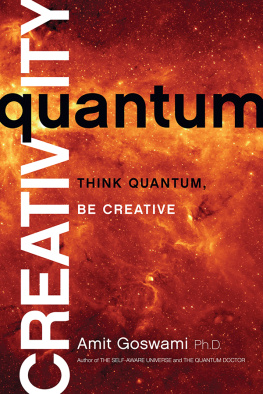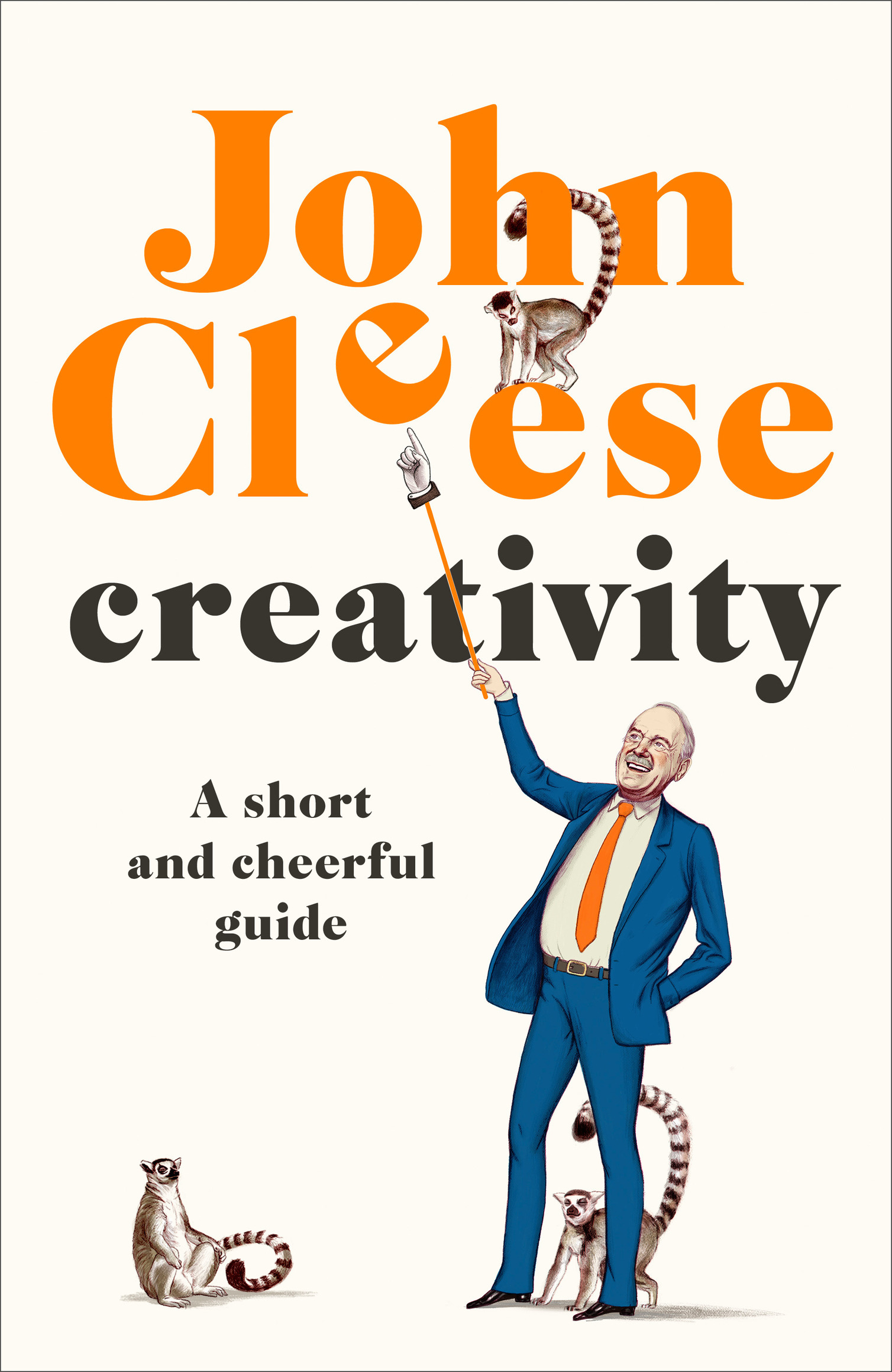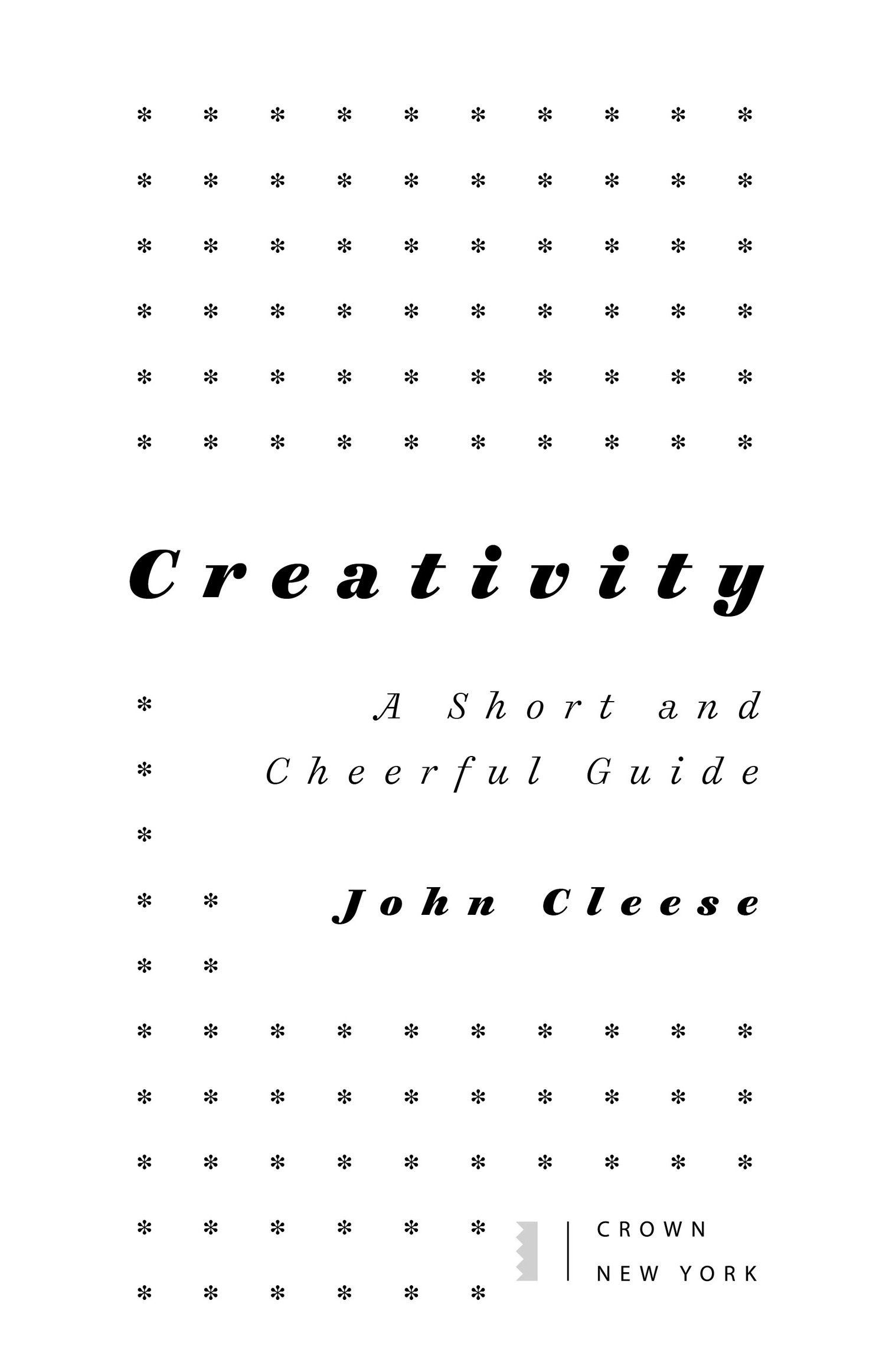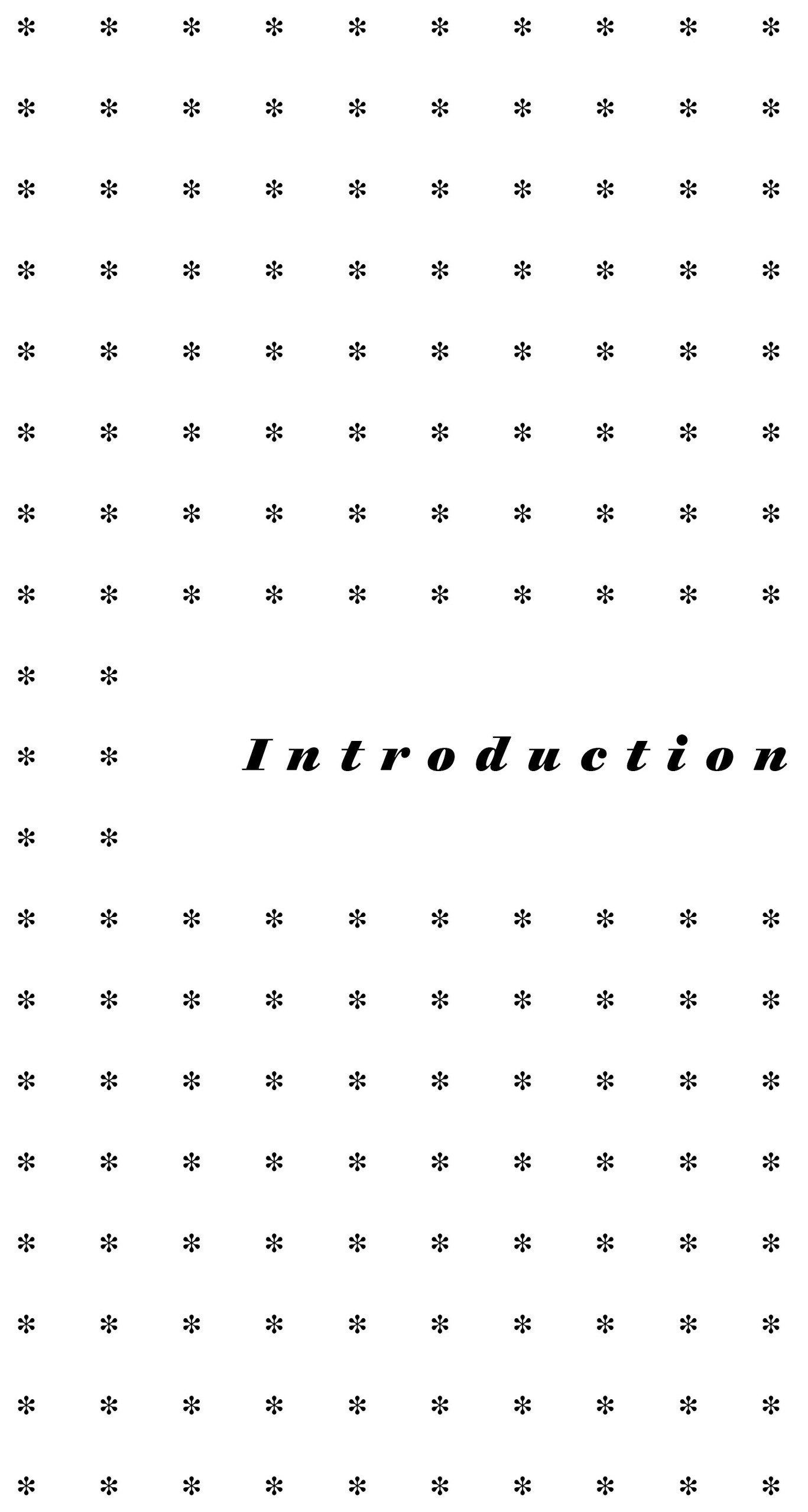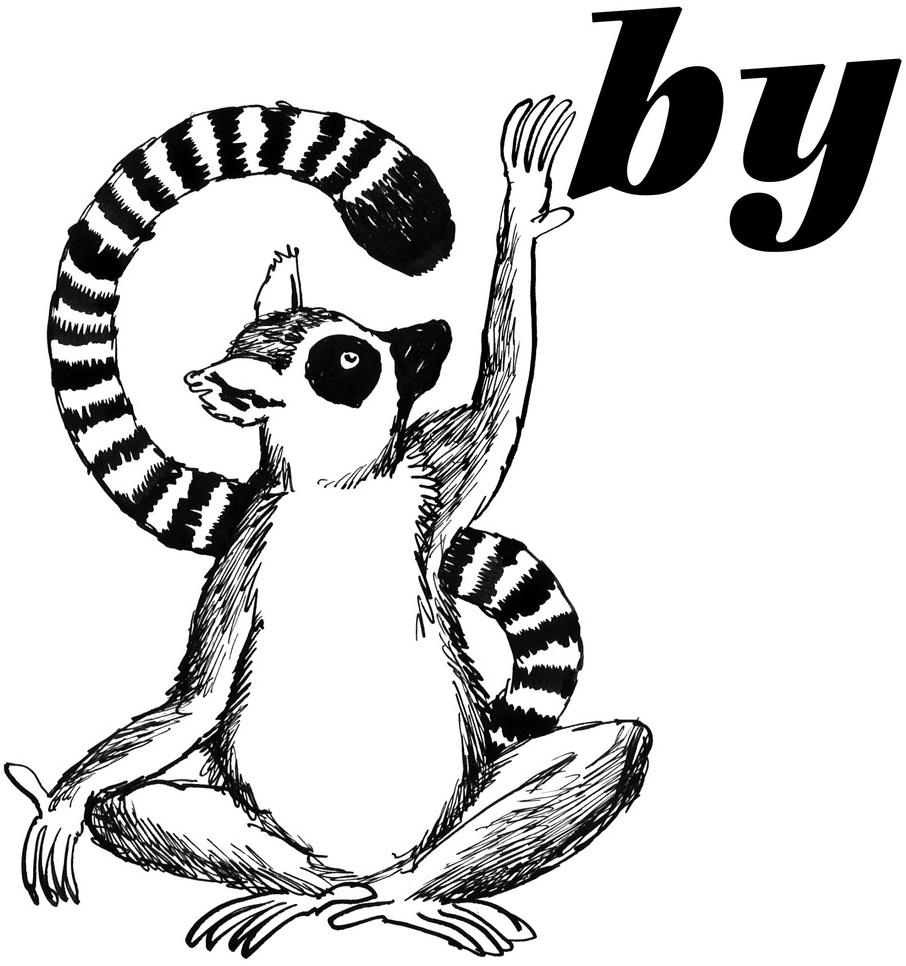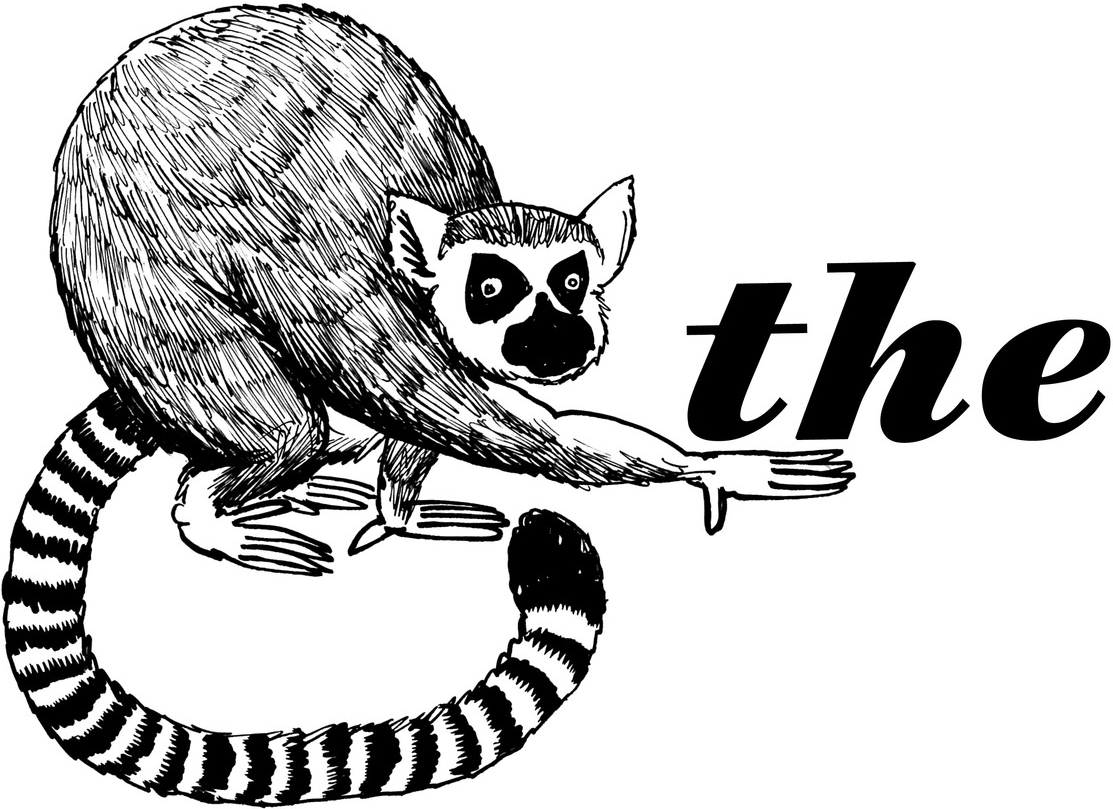All rights reserved.
Published in the United States by Crown, an imprint of Random House, a division of Penguin Random House LLC, New York. Simultaneously published in hardcover in Great Britain by Hutchinson, an imprint of Cornerstone, a division of Penguin Random House Ltd., London.
C ROWN and the Crown colophon are registered trademarks of Penguin Random House LLC.
creativity, I simply mean new ways of thinking about things .
Most people think of creativity as being entirely about the artsmusic, painting, theatre, movies, dancing, sculpture, etc., etc.
But this simply isnt so. Creativity can be seen in every area of lifein science, or in business, or in sport. Wherever you can find a way of doing things that is better than what has been done before, you are being creative.
Another myth is that creativity is something you have to be born with. This isnt the case. Anyone can be creative.
When I was at school in the late forties and the fifties, no teacher ever mentioned the word creativity. Just think how extraordinary that is.
Mind you, this was partly because I did Science at schoolmy A levels were in Maths, Physics and Chemistryand, of course, there wasnt much room for me to be creative in those subjects. You have to learn an awful lot of science before you can even begin to think about taking a creative approach to it.
Then I went to Cambridge and studied Law. Not much creativity there. You just had to decide whether one particular set of facts fell into this category or that category.
But, regardless of the subjects I chose to study, its clear that nobody in charge of the English education system seemed to have realised there was any need to teach creativity.
And you can teach creativity. Or perhaps I should say, more accurately, you can teach people how to create circumstances in which they will become creative.
And thats what this little book is all about .
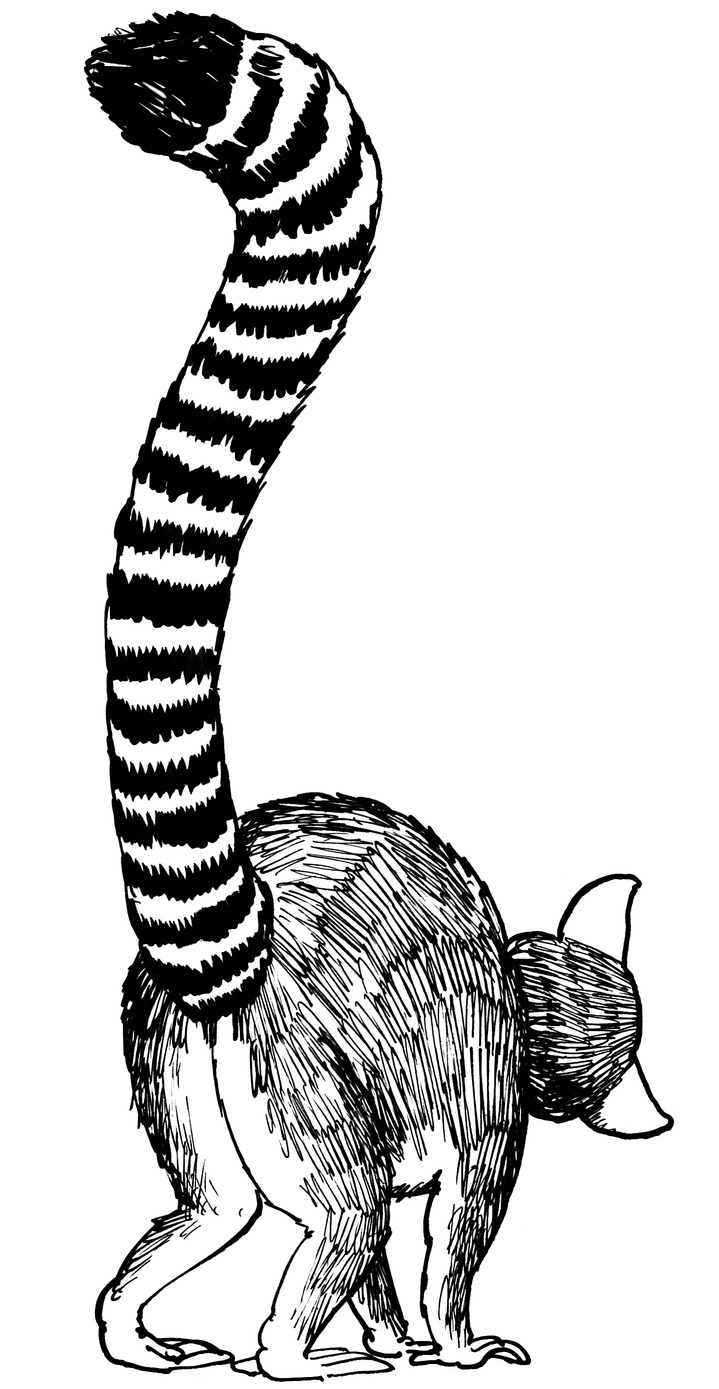
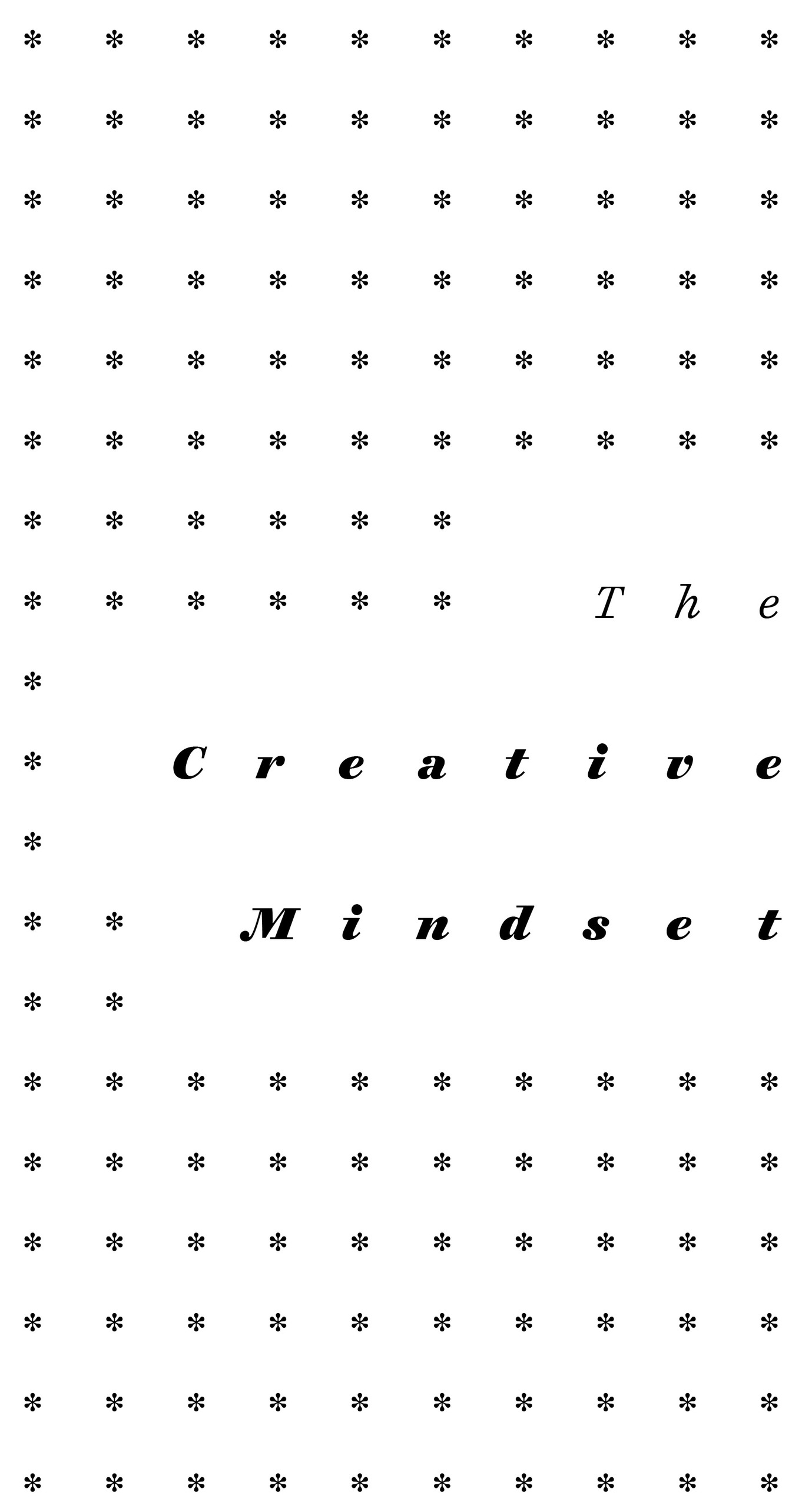
first time I discovered I was a bit creative, it came as a surprise . I was at Cambridge and I had got to know a very nice group of people who had a small club room near my digs, as they were a part of a society called the Footlights. They put on little shows on the club-room stage, performing sketches and monologues and musical items.
I didnt join the Footlights because I thought I might want to go into show business. Not at all! I was going to be a lawyer! I joined the club because its members were the nicest bunch of people I met at Cambridge. They were good companyof course, since they were all in one way or another funnyand they were also an interesting mixture of social classes and academic interests. For some reasonmaybe because they had a sense of humourthey werent stuck up, or show-offs, or in any way impressed with themselves.
To become a member of the Footlights you first had to write something. I therefore came up with a couple of sketches to perform, and was accepted. Each month, I discovered, they organised what was known as a smokershort for the old-fashioned phrase smoking concert. This was a show put on in the Footlights club room in which all members took part. Because everyone had to get up and do something, we all had an interest in creating a nice, friendly atmosphere, so it was the perfect environment if you were performing for the first time.
And it was during the course of writing sketchesthe first imaginative thing I was ever conscious of doingthat I realised that I could be creative. That is to say, if I wrote something down on a piece of paper, and performed it later on, I could make people laugh. And the point iswhat I was writing was original. (I dont mean that I wasnt influenced by lots of other people and comedy programmes I thought wonderfulespecially The Goon Showbut what was going down on the paper wasmine.)
And then I started becoming aware of something else that was interesting. And very odd, too.
If I wrote a sketch by myself in the evening, Id often get stuck, and would sit there at my little desk, cudgeling my brains. Eventually Id give up and go to bed.
And in the morning, Id wake up and make myself a cup of coffee, and then Id drift over to the desk and sit at it, and, almost immediately, the solution to the problem Id been wrestling with the previous eveningbecame quite obvious to me! So obvious that I couldnt really understand why I hadnt spotted it the night before. But I hadnt .
This is how I began to discover that, if I put the work in before going to bed, I often had a little creative idea overnight, which fixed whatever problem it was that I was trying to deal with. It was like a gift, a reward for all my wrestling with the puzzle. I began to think to myself, It can only be that while Im asleep, my mind goes on working at the problem so that it can give me the answer in the morning.
This realisation was very foreign to me. I had always assumed that thinking was all about furrowing my brow, and trying terribly hard.
While I was still wondering about this, something else occurred.
I sometimes collaborated with my friend Graham Chapman, and we had written a parody of a Church of England sermon. (At that time Graham and I were both obsessed with all the humour we could derive from the Bible: so much so that when people came into my room and saw an Authorised Version on my desk, they would say, Oh! Youve been writing sketches again.)
Graham and I thought it was rather a good sketch. It was therefore terribly embarrassing when I found Id lost it. I knew Graham was going to be cross, so when Id given up looking for it, I sat down and rewrote the whole thing from memory. It actually turned out to be easier than Id expected.
Then I found the original sketch and, out of curiosity, checked to see how well Id recalled it when rewriting. Weirdly, I discovered that the remembered version was actually an improvement on the one that Graham and I had written. This puzzled the hell out of me.
Again I was forced to the conclusion that my mind must have continued to think about the sketch after Graham and I had finished it. And that my mind had been improving what wed written, without my making any conscious attempt to do so. So when I remembered it, it was already better.

